
Schadenfreude is a word that many of y’all might not have heard of, yet we’ve all felt it. Interestingly enough, it can be a great tool to keep our audience interested and breathlessly wanting more. What is schadenfreude, other than a fifty dollar word we can toss around to impress friends and colleagues?
Schadenfreude—a combination of the German words for damage and joy—is the pleasure we feel at the misfortune of others.
Before anyone gets too judgy on me, we have all felt it.
Have you ever had some driver on the highway who believed they were above the rules and didn’t need to merge and take turns? Instead they sped up the shoulder so they could cut the line instead of patiently waiting their turn? Schadenfreude is the delicious enjoyment you felt when there actually was a police officer present who summarily pulled them over and ticketed the bejeezus out of them.
Don’t you judge me. Y’all know you love it, too.
We humans, by and large, have a sense of justice encoded in our psyche. This is why even a preschooler has a level of acumen usually reserved for an IRS auditor when adults pass out candy. They sense what is fair and unfair, right and wrong.
This ingrained sense of right and wrong and fair and unfair is part of what drives our need for a sense of justice. We don’t like it when others “get away” with doing something we perceive as “wrong.”
Shades of Schadenfreude
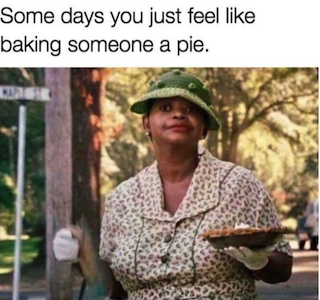
Therein lies the deliciousness of schadenfreude…the what we consider “wrong.”
Like most things involving the human psyche, this isn’t black and white, rather it exists on a spectrum. There is wonderful thrill of pleasure we feel when a speeder gets a (deserved) ticket that can go as far as total dehumanization of others and a delight at their complete destruction.
Schadenfreude is story jet fuel.
Before you might believe you are too “evolved” for such feelings, how many movie plots pivot on the bullies finally getting a taste (or more) of their own medicine? When there is a gross power imbalance, and that imbalance is abused, we humans can turn positively feral.
One of my favorite authors, Lucy Foley, wields schadenfreude like few other authors I’ve read. The Guest List and The Midnight Feast are page-turning dark delights. Alice Berman is another author who uses this darker side of human nature to create a thrilling story in I Eat Men Like Air.
Why do I love these books? Because these authors (stories) pick apart “the beautiful people.” From old money to self-anointed Instagram influencer demi-gods-in -their-own-minds, these stories pry at something primal in all of us…that some people are “better.”
Instead of characters who are grateful for a blessed life dripping in privilege, they are the entitled. They amuse themselves at the suffering of others purely for sport. Not only that, but they take great delight in how they, themselves, are above the rules. When these sorts of people commit crimes, the “real” world cannot punish them.
But Author Gods can.
Lovely Loathing
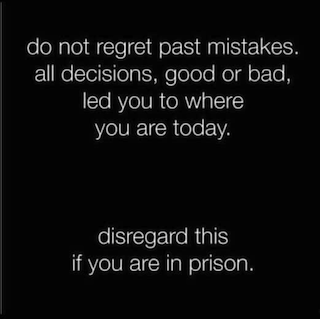
Foley and Berman are of the suspense-thriller variety, but Kevin Follet is another author who is unparalleled at whipping up a fire of resentment that rivals the fires of Gehenna. When I read Pillars of the Earth, I literally had to keep taking breaks reading the book because my own level of hatred overwhelmed me.
Like any book, Pillars of the Earth isn’t for everyone. It nearly wasn’t for me. Every time I considered throwing in the towel, I I found I couldn’t stop because I HAD to know if there was any kind of justice in this mad, mad world.
All of these books have a common thread. Raw, beautiful exquisite revenge justice.
We are ALL wired with a sense of right and wrong.
Even sociopaths have a sense of justice.
Read Martha Stout’s The Sociopath Next Door. A sociopath might not lose any sleep emptying your bank account, but would be horrified if you did the same to him.
Follet masterfully wove situations where I was rendered utterly and hopelessly powerless.
What is the epitome of being a victim? ZERO POWER. When evil strikes, what does it do to a person?
It strips away their power.
From money crimes to sex crimes, to hate crimes to murder it’s the same. Arson, abduction, terrorism, shootings, sex trafficking, burglaries, large-scale vandalism, gossip, slander, lies, it hits us all in the same place.
It makes us afraid and vulnerable and impotent.
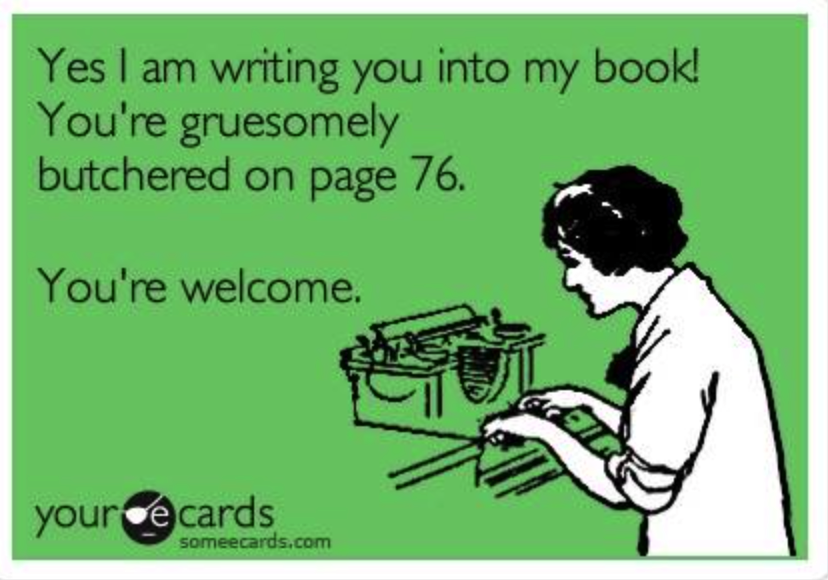
What makes it worse? When we KNOW who’s done this, but this is a person no one can touch.
This was what made me practically foam at the mouth reading Pillars of the Earth. Because the story is (loosely) based on actual history. In the Middle Ages, nobility and high-ranking clergy got away with a LOT of really, really bad things.
Talk about powerlessness to the power of a thousand.
*Kristen punching things* *grabbing for inhaler* *ponders subscribing to Hallmark channel*
Yet, it kept me listening (turning pages) because I could not rest until the world was set right and justice was served. I wasn’t even sure it would be or could be. And if it was, HOW?
THAT, my friends, is some fine storytelling (so I am extremely glad I didn’t return the book). Also, THAT is the raw power of schadenfreude.
Villains & Schadenfreude
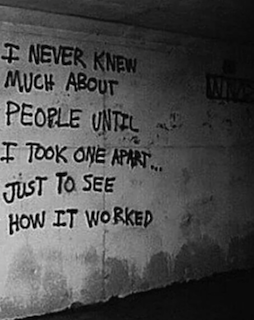
There are many ways to create legendary villains. And, keep in mind, there are different types of villains. Though, I recommend giving the villain a sympathetic goal, like the word wrong exists on a spectrum, so does the word sympathetic.
I get that far too many “normal people” think writing is easy. That if they only had enough time they’d be the next J.K. Rowling or George R.R. Martin. Sadly, no number of lockdowns is enough to disabuse some folks of the notion that storytelling is more than playing with imaginary friends.
To tell great stories, we are required to think differently than regular people.
***Refer to 13 Reasons Writers are Mistaken for Serial Killers
A book is more than a lot of flowery words, it is a peek into what makes people tick. Which is all well and good except some people’s “clockwork” is arguably manufactured in HELL.
Villains (antagonists) cannot want what they want for no reason. “Just cuz” is not good enough. When storytelling, we must be capable of violence. That is the only way for the “happy ending” to have any meaning.
***And before you think this is only for gritty genres, remember most fairy tales have some pretty horrifying villains.
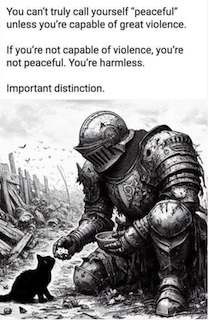
Even the most revolting people in all the works I have thus far mentioned, deep down, believed themselves the heroes of their own stories. No matter how horrible they were, they genuinely could not see themselves honestly. Their world was a funhouse mirror designed to warp them into something they were not.
That said, some characters deserve destruction for one simple reason.
They are beyond redemption.
They are the rabid dogs of fiction. Writers and audiences alike know that to let some characters live or remain free is unacceptable. They are poison.
Why schadenfreude is such an incredible literary device is because it speaks to justice, which is universal. When crafting a villain (or even side characters who serve as antagonists), what universal rules are they breaking? Why? How? Now, can you dig deeper until the pages BLEED?
Villains & Cognitive Distortion
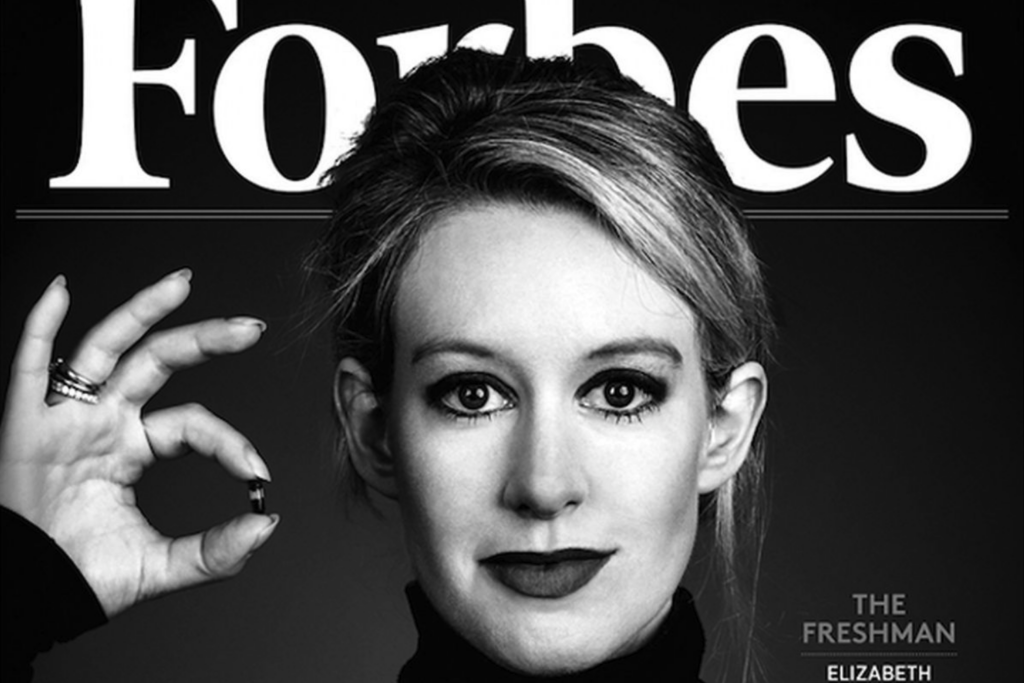
To a degree, all characters in our story are dealing with cognitive distortions. If they aren’t, then they aren’t interesting. All humans struggle with personalizing, catastrophizing, minimizing, justifying, unattainable standards, wishful thinking, etc.
In fact, for your touring pleasure, here is a list of 50 Common Cognitive Distortions.
All characters should have a cognitive distortion–to a degree–because all characters should arc.
What makes the villain unique, however, is they have a negative arc.
While the MC or other positive forces (allies), grow, mature and evolve, the villain does the opposite. The villain devolves. They become even more convinced of their righteous cause, even more controlling, raise their already absurd standards to new levels of ridiculous, etc.
Ideally, we will give some reason for why the villain does what he does or believes what he believes. While we might not be able to, say, empathize with the actual cognitive distortion, we (the audience) can empathize with either having experienced the distortion ourselves OR the reason for the distortion.
For example, I cannot relate to the same level of entitlement as Francesca Meadows in The Midnight Feast. I am not old money, reared to believe I am privileged and entitled BUT I DO viscerally remember the first time I met another kid named “Kristen” and the raw fury I felt that another kid in my preschool had MY NAME!
MY NAME. MINE.
It’s a silly example, but she had to be destroyed that childlike rage is something a good story can tap into to give us the proverbial “sympathy for the devil.”
Mene, Mene, Tekel, Parsin

The Bible, in the Book of Daniel, tells the story of Belshazzar, who was King Nebuchadnezzar’s successor. Talk about a guy with an ego problem! He holds a banquet for all the nobility and thinks that calling for all the holy vessels from the Jewish Temple is a great idea…since they totally didn’t have enough cups *flips hair*.
What Belshazzar didn’t know—and likely would not have cared even if he did—was that he’d committed a great sacrilege. Y’all know the phrase we toss around, “Read the writing on the wall.” Well, this is where it comes from.
After Belshazzar uses all the holy vessels as Dixie Cups for his Meta-Influencer BBQ, a disembodied hand appears and writes Mene, Mene, Tekel, Parsin on the wall.
He can’t read the writing on the wall (nod to Shakespeare and IRONY) and calls for Daniel to translate the message, which was in Aramaic.
God tells Belshazzar that 1) his days are numbered (another nod to Shakespeare) 2) that his kingdom will fall, and 3) that he has been weighed, measured and found wanting.
There are good reasons that we find all the best stories mirrored in Scripture or Shakespeare.
Humans don’t change, and if humans don’t change, then—ipso facto—villains don’t change.
The entitled trust fund baby can genuinely believe they are “better” than others. Yet, though they are deeply believe they are better than others, they simultaneously fear their days are numbered. Frequently, they know that while they are better than everyone else, they’re never “good enough” for the person (people) who matters.
Additionally, with villains like this, their pride becomes their Achille’s Heel. They so wrapped up in their agenda, they are blind. Because they are blind, they cannot help but fall.
And none of us (readers) mind if they’re given a little push.
Schadenfreude & Catharsis
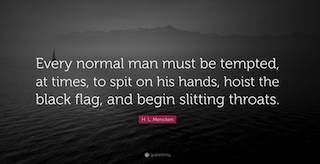
From Edgar Allen Poe’s The Telltale Heart to Kathryn Stockett’s The Help we audiences aren’t happy until there is some form of comeuppance.
***Ironically, in The Telltale Heart the MC is the villain. His own inborn sense that evil cannot go unpunished is the point of the story.
All stories are only as strong as their villains. If we are wishy washy on the villain, the rest of the book is bland. When we hold back on our villain, we inadvertently wreck our stakes.
There is something primal in all good stories. Humans have deep sympathy for the unavenged, the disappeared, and the disenfranchised. Every day, we see injustice and evil, and every day we know that the people causing much of this suffering will never be called to account.
Writers & Schadenfreude
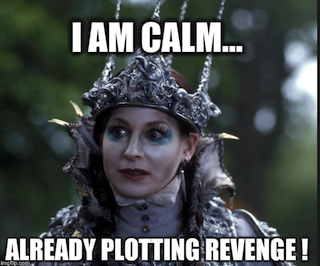
Do you wield a little schadenfreude when you write?
I always find it a bit funny when readers ask if my villains are based on people I know because…DUH. YES. #SeriouslyDumbQuestion
Are they wholly patterned off ONE person? No. That would be copying not creating. They’re a collage of a million little events that made me…ME. And I get to enjoy a little bit if schadenfreude by casting them in my world  .
.
*insert evil laughter*
It’s very therapeutic and cheaper than a defense attorney.
Do you see how just a touch of schadenfreude can also help with a “too perfect” character (maybe an MC)?
“Cutting someone down to size” is enjoyable in life and in fiction. Though we didn’t go into it today, can you see how schadenfreude can work in a redemption story, a love story, or wherever a character needs to grown and learn some humility?
I LOVE hearing from you!
Had you ever heard the term schadenfreude? Are you now committed to now finding ways to work this word into everyday conversation? Do you enjoy books and movies that deal out at least a little revenge?
Am I the only person who revels when a hidden cop pulls over a reckless driver?
Thoughts? Opinions? Favorite tales of schadenfreude?
And remember, my perennial author branding book, Rise of the Machines: Human Authors in a Digital World and my mystery thriller The Devil’s Dance are both on sale on Kindle right now for only .99.
Whether it is comments, shares, sales, or reviews, these are the things that keep us content producers (and authors) going and able to keep delivering. I always appreciate your support and love being able to keep doing this for you!
The post Schadenfreude: Misfortune, Revenge, Justice & Catharsis appeared first on Kristen Lamb.
